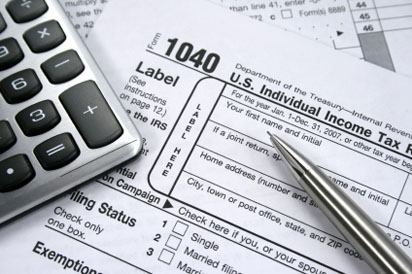
There are certain days on the calendar that are readily recognized by most – January 1, July 4, December 25, and of course, April 15, the due date for filing Federal personal income tax returns for the vast majority of the population. Many taxpayers may be aware of the ability to file for an extension, which is typically for six months. However, filing income tax extensions is not as simple as may be perceived. A valid Federal extension request requires an individual to have paid 90% of their Federal income tax by the original due date, i.e. April 15, 2015 for the 2014 year.[1] Yet how can a taxpayer determine whether their extension request is valid if prior to April 15, the amount of tax owed is undetermined? What should taxpayers consider when requesting an extension?
Navigating the extension process
It is important to realize that the extension request is a request for additional time to file, as opposed to an extension for time to pay. Internal Revenue Code Section 6072 requires calendar year taxpayers to file personal income tax returns annually by April 15th following the close of the calendar year. Where April 15th falls on a weekend or holiday, the due date is delayed until the following business day. Most, but not all states, use the same due date for their personal income tax laws. For example, Hawaii personal income tax returns are due April 20th following the close of the year, and Virginia personal income tax returns are due by May 1st following the close of the year.
If a taxpayer has overpaid their taxes, however, for various reasons is unable to file their Federal 2014 income tax return(s) by the April 15, 2015 due date, then the filing of an extension request is rather uneventful. Federal Form 4868, which can be obtained from the Internal Revenue Service website, merely lists taxpayer name(s), address, social security number(s), projected tax and payments to date (withholding plus estimated tax payments). Some states do not require an extension to be filed if a Federal extension is being filed and there is no state tax payment being remitted.
It is where a taxpayer owes tax that the filing of extensions can be challenging. Prior to the April 15th due date, the taxpayer may not have a clear picture regarding all of their taxable income, especially if they own interests in pass-through entities, partnerships (including LLCs) and S corporations, which may not generate the Schedule K-1 needed by the 1040 filer until the summer, as calendar year pass-through entities are often on extension as well through September 15. A tax calculation will be made based on the best information available, incorporating estimates of missing items to arrive at projected tax liabilities to determine whether extension payments are needed.
Additional considerations
Further complicating matters is that April 15, 2015 is generally the due date for first quarter 2015 estimated tax payments. Many taxpayers pay their estimated tax payments on the “safe harbor” based on the prior year tax liability – 110% of the prior year Federal tax where prior year gross income exceeded $100,000. If a taxpayer is on extension, and thus their 2014 income tax liability has not yet been determined, the safe harbor is less reliable, as the ultimate tax liability may come in higher than was computed.
Potential penalties
If a taxpayer does not meet the required threshold for having a valid extension, they are liable for late payment and late filing penalties. These penalties can be abated if it can be shown that reasonable cause existed for the underpayment. Interest is always due on any balance due for a tax return filed on extension, and the interest is not deductible.
Neil Becourtney, CPA
CohnReznick LLP

















